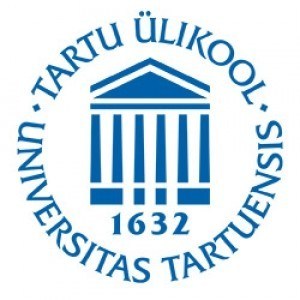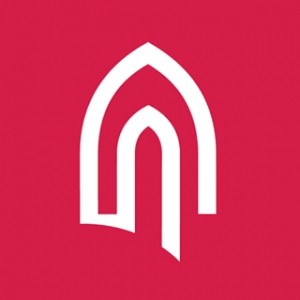Photos of university / #unitartu
The Bachelor's degree programme in Software Engineering at the University of Tartu is a comprehensive and forward-looking educational path designed to prepare students for the rapidly evolving field of software development and information technology. This programme offers a thorough foundation in the core principles of software engineering, including programming, algorithms, data structures, software design, and testing, while also emphasizing the importance of teamwork, project management, and communication skills essential for a successful career in technology. The curriculum combines theoretical knowledge with practical experience, allowing students to work on real-world projects and develop hands-on skills through laboratory work, internships, and collaborations with industry partners. Students learn to analyze complex problems, design and implement efficient software solutions, and adapt to new technologies in a continuously changing digital landscape. The programme also covers emerging topics such as artificial intelligence, machine learning, cybersecurity, and cloud computing, ensuring graduates are well-equipped to meet current industry demands. Courses are taught by experienced faculty members who are active researchers and industry practitioners, providing students with insights into both academic and practical aspects of software engineering. The University of Tartu’s modern facilities, state-of-the-art laboratories, and strong network of alumni and industry contacts offer a conducive environment for learning and innovation. Graduates of the programme are highly sought after by employers across various sectors, including IT companies, financial institutions, healthcare, and government agencies. They possess not only technical expertise but also problem-solving abilities, creativity, and adaptability necessary for lifelong learning in the dynamic field of software engineering. The programme encourages an international outlook, with opportunities for student exchanges and collaboration with universities around the world. Graduates will be prepared to pursue advanced studies or start their own ventures in the tech industry, contributing to technological progress and digital transformation globally.
Why study software engineering in Estonia?
• Unique small country that strives to be the number one IT force in the world;
• Pioneer in electronic identity, electronic voting, adopting mobile technology, online banking and electronic government services;
• Mobile parking system was commissioned first in the world in Estonia;
• Home to Skype, NATO’s cyber-defence centre of excellence, the EU’s IT Agency and many successful IT start-ups;
• 99.6% of banking transactions are done electronically;
• Over 86% of citizens have ID-cards that they use to access online banking, e-voting, sign documents etc.;
• 95% of population declares their income electronically (2013);
• It takes only 15 minutes to establish a firm on the Internet;
• More than 1100 public Wi-Fi networks officially registered.
Admission requirements:
• Bachelor’s degree (or equivalent) in Information Technology, Computer Science, Software Engineering, Computer Engineering, Information Systems or a related field.
Applicants with a Bachelor’s degree in Mathematics or Natural Sciences, Technology, Engineering, Business or Economics are eligible if they have completed at least 24 ECTS of courses in Information Technology, including courses in Programming, Database Technology and Software Engineering.
Application process:
1. Fill in the online application form. Remember to print it out at the end and sign it, because you also need to send it to us. You also need to upload copies of your other documents so we can start checking them. When you register to fill in the application form, you will receive an applicant code, which gives you access to your account to track your application status.
2. Mail the printed and signed application with all the required documents by the deadline (April 16) to: International Student Service, University of Tartu, Ülikooli 18, Tartu 50090, Estonia
Necessary documents:
• online application;
• motivation letter – guidelines and evaluation criteria are included in the online application form and on UT website;
• official copy of the Bachelor’s diploma or its equivalent and Diploma Supplement (transcript/mark sheet) in the original language*;
• official translation of the Bachelor’s diploma and Diploma Supplement (transcript/mark sheet) into English, translation certified;
• proof of the English language proficiency (TOEFL iBT 75, IELTS 5.5, Cambridge English FCE grade B, CAE 45 points, CPE, PTE Academic 59 points, exceptions listed on web);
• copy of the passport page stating the applicant’s personal particulars.
Application deadline: April 16
More information: www.ut.ee/software
All admitted students will receive a tuition-waiver scholarship. Students receiving this scholarship do not have to pay the tuition fee if they complete full-time study load (30 ECTS per semester). If it turns out that they do not complete full-time study load per semester, they have to pay tuition fee per missing credit point below the required 30 ECTS. Monthly stipends are also available. Students will be automatically considered for both when they apply.
The Software Engineering program at the University of Tartu is designed to provide students with a comprehensive education in the principles, practices, and tools necessary for the development of high-quality software systems. The curriculum emphasizes both theoretical foundations and practical skills, enabling graduates to effectively address the challenges of modern software development in various domains. Students explore core areas such as programming, algorithms, data structures, software design, and architecture, alongside specialized topics like software testing, quality assurance, project management, and user experience design. The program also integrates modern software engineering methodologies, including agile development, DevOps practices, and continuous integration/continuous deployment (CI/CD), preparing students for the dynamic nature of the industry.
Throughout their studies, students engage in project-based learning, collaborating in teams to develop real-world applications, which fosters teamwork, communication, and problem-solving skills. The program often includes internships and partnerships with technology companies, providing valuable industry exposure and opportunities for practical application. Graduates are equipped to work in various roles such as software developers, system analysts, quality assurance engineers, and project managers, or to pursue further research or postgraduate studies.
The university staff comprises experienced academics and industry professionals dedicated to providing high-quality education and mentoring. The program places a strong emphasis on ethical considerations, data security, and the societal impact of technology, preparing students to become responsible software engineers. Access to state-of-the-art laboratories, software tools, and research resources enhances the learning environment. Graduates of the program are well-positioned to contribute to the digital transformation processes across sectors such as finance, healthcare, telecommunications, and government, supporting innovations and driving technological progress.
The duration of the program is typically three years for Bachelor’s degrees, with opportunities to continue for a Master’s or doctoral qualification. Admission requirements generally include the successful completion of secondary education with a focus on mathematics and computer science, alongside proficiency in English. The program aims to cultivate a strong foundation for continuous learning, adaptability, and professional development, ensuring graduates are prepared to meet the evolving demands of the software industry both locally and globally.

